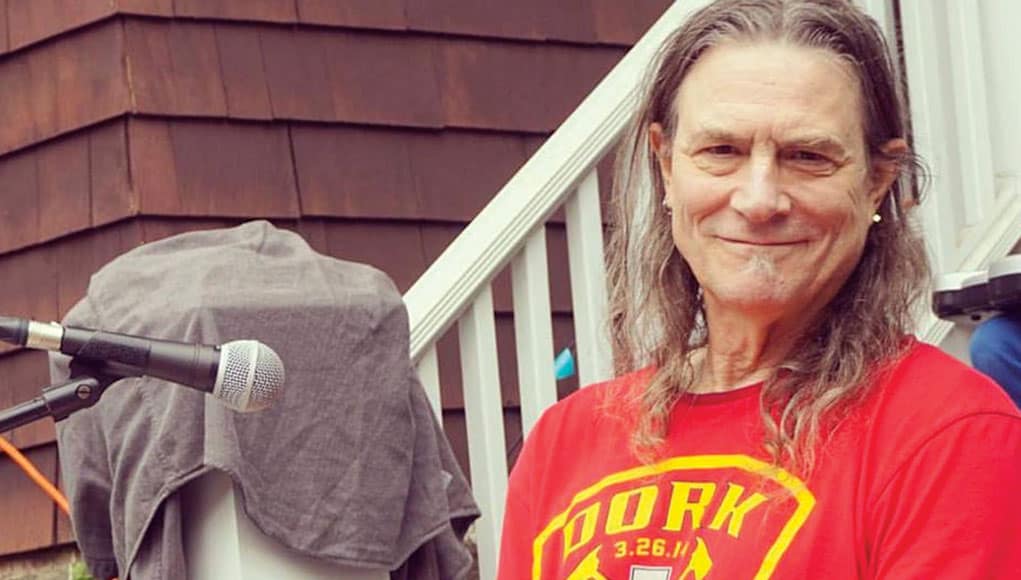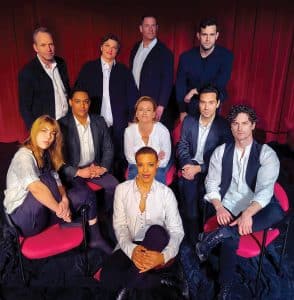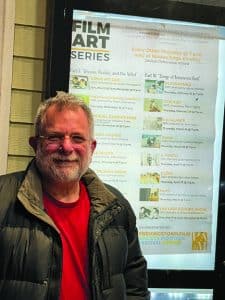by Steve Desroches
Both the United States Army and the Peace Corps rejected Rick Berlin. Once he graduated from Yale University in 1967 the draft and the prospect of going to Vietnam loomed large. He received several deferments as a teacher and then as a graduate student at Yale School of Architecture, which he hated. So he dropped out and applied to serve in the Peace Corps in South Korea. However, he was told that he was “too direct” for the “indirect” culture of the Korean peninsula. Shortly thereafter he received a notice to report for his draft physical. Before the medical examination he dropped acid and arrived “tripping his brains out.” He received a “4F” and was declared unfit for military service as the Army psychiatrist classified him “suicidal and homicidal.”
“I thought that would have been helpful if you’re sending people off to war,” says Berlin. “It was an odd time.”
Being regarded as suited neither to create peace nor to fight in a war was a strange place to find yourself in America in the late 1960s. But then again, a true independent mind can be confusing upon first introduction, especially to the establishment, regardless of its perspective on the world. Berlin’s life is bedazzled with those tales of revelry and rebellion, but not in the splashy way of Easy Rider or the Chicago Seven. Rather it was a wild slog, one that took him to his status as an underground rock and roll legend, one that he’ll give a glimpse into when he appears at the Afterglow Festival this week with his show Songs with Subtitles.
As the front man of Orchestra Luna and later bands like Berlin Airlift and The Shelley Winters Project, Berlin garnered a devoted fan base, one that maintains to this day, particularly in Boston, the city that has been his home for over 40 years and where he is local rock and roll royalty. When he formed Orchestra Luna in 1973 and then released an eponymous album a year later, the band found itself on stage with the likes of Patti Smith and Patti LaBelle at a party for Frank Zappa, opening for Roxy Music on tour, and then as contemporaries of bands like Blondie, the Talking Heads, and the Ramones at the famed CBGB’s in New York. But much like the Army and the Peace Corps, the music industry didn’t know what to do with Berlin, and his revolutionary theatrical rock music. His is a story of dedicating one’s life to art and music, a story that has roots on the tiny island of Grenada.

While the military saw him as mentally deranged and dangerous, Yale gave him another shot and offered him a full scholarship to the prestigious drama school at the Ivy League university. But a drug dealer from Amherst, Massachusetts, swung through the campus to make a variety of special deliveries. He offered roles to the drama students in a movie about the apocalypse he was filming on the Caribbean island famous for its nutmeg long before the short, bizarre American invasion President Ronald Reagan led in 1983. The offer was so tempting he dropped out of Yale again, and with 35 cast mates moved to Grenada where, for three months, they took acid and filmed the movie, in which they were largely naked.
One night, an Italian sailboat appeared nearby, and Berlin and crew used the boat for a scene in which he climbed to the mast nude with a spyglass looking for the end of the world. The one-ship Grenadian Navy arrested everyone associated with the film and threw them in jail. Through the charms of a fellow cast member the case attracted the attention of Maurice Bishop, a leading island attorney, who secured their release. He told them never to come back. Years later, Bishop became prime minister and was assassinated in the 1983 coup that led to the U.S. invasion.
“It was crazy,” says Berlin. “It started as an amazing experience. It was a paradise. But it actually turned into a terrifying experience. It was a crazy, crazy time. That drug dealer is still alive. He told everyone back then he had MS, but he’s still alive, so I think that was bullshit. I have no idea where all that footage we shot is.”
Berlin moved back to New Haven, where he worked at an adult bookshop not far from the Yale campus briefly before founding Orchestra Luna. The band frequented Provincetown throughout the 1970s, as then the Cape tip had a robust rock and roll scene. Berlin returned each decade since remembering one out of control night in the Eighties when during a gig someone started a fight with his boyfriend, guitarist Steven Paul Perry, and Berlin “swatted at him in the a most ineffectual way.” Come the 1990s Berlin began a 10-year residency at Jacques’, Boston’s drag queen cabaret in the Theater District, where he performed every Monday night.
For the past 25 years, Berlin has also waited tables at Doyle’s Cafe in Jamaica Plain and most recently plays with his latest incarnation The Nickel & Dime Band. He wrote an accidental memoir, The Paragraphs, which, along with inspiration from Spalding Gray’s theater piece Swimming to Cambodia, provided the framework for his show Songs with Subtitles. Much like his life, Berlin says the show will be blunt, at times funny, and at times strange, adding, “We’ll see what happens. People seemed moved by it.” It’s certain to be full of surprises, too, as has his life. He laughs when he remembers one night while working at Doyle’s when his manager told him he had a phone call. It was Shelley Winters, the namesake of his latest band then, so called as he kept writing songs about women done wrong. And lots of Winters’ characters fit that bill. She was curious as to what exactly this theater troupe was all about. He explained it was actually a band and the reason he chose her name.
“She laughed and said, ‘That’s the best thing I’ve heard in years,’” says Berlin. “It was so strange to hear her voice on the phone. She laughed and laughed. She died not long after, maybe a few months. I’m glad I got to tell her how much I loved what she’d done.”
Rick Berlin presents Songs with Subtitles as part of the Afterglow Festival at the Art House, 214 Commercial St., on Wednesday, September 11 at 7 p.m. Tickets ($30) are available at the box office and online at ptownarthouse.com. For more information call 508.487.9222.











